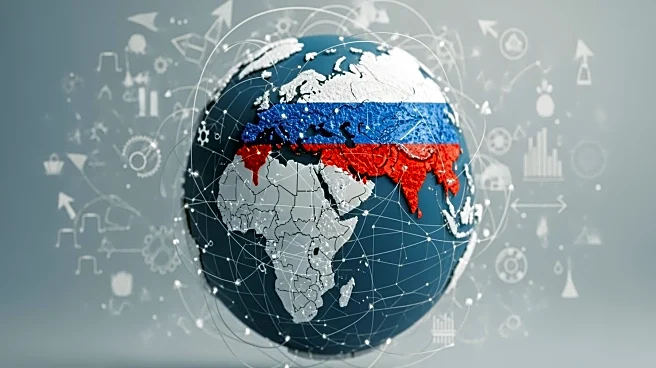What's Happening?
President Donald Trump has imposed significant sanctions on Russia's largest oil companies, Rosneft and Lukoil, aiming to cut off financial support for Russia's military actions in Ukraine. These sanctions have
prompted reactions from major oil-importing nations, China and India, which have been significant buyers of Russian oil. Some Chinese state-owned oil companies have begun canceling purchases, while Indian companies are adapting to comply with the sanctions. The sanctions are part of a broader strategy to pressure Russia economically and diplomatically.
Why It's Important?
The sanctions represent a critical juncture in international energy markets, potentially disrupting the flow of Russian oil to major economies like China and India. This could lead to increased oil prices globally and affect energy security in these countries. The sanctions also test the geopolitical alliances, as China and India must balance their economic interests with their diplomatic relations with the United States. The outcome of these sanctions could influence global oil supply chains and international diplomatic relations.
What's Next?
China and India may seek alternative oil sources or develop new strategies to circumvent the sanctions, such as using intermediaries or shadow fleets. The U.S. will likely monitor compliance and may impose further penalties on entities that violate the sanctions. The situation could lead to diplomatic negotiations between the U.S., China, and India to address the broader implications of the sanctions on global energy markets and geopolitical stability.
Beyond the Headlines
The sanctions highlight the complex interplay between energy security and international diplomacy. They underscore the challenges of enforcing economic measures in a globalized market where countries have diverse interests. The situation also raises questions about the effectiveness of sanctions as a tool for achieving foreign policy objectives, particularly when major economies are involved.












